Understanding the Differences Between Young Coconut (Coconut Water) and Mature Coconut (Coconut Meat and Milk): A Comprehensive Guide**

Coconuts, known scientifically as Cocos nucifera, are a tropical fruit revered for their versatility and numerous health benefits. They are a staple in many cultures around the world, particularly in tropical and subtropical regions. When discussing coconuts, two primary stages of development often come to mind: the young coconut, commonly referred to as “coconut water” or “young coconut,” and the mature coconut, which is primarily valued for its coconut milk and meat. While both stages offer unique nutritional profiles and uses, understanding their differences is crucial for maximizing their benefits. This comprehensive guide aims to delve into the distinctions between young coconuts and mature coconuts, exploring their physical characteristics, nutritional values, culinary uses, and health benefits.
Physical Characteristics
Young Coconut (Coconut Water)
Young coconuts, also known as tender coconuts or green coconuts, are harvested from the coconut palm tree when the fruit is still in its early stages of development. Typically, this occurs between six to ten months after pollination, when the outer husk is still green and the nut inside contains a substantial amount of clear, refreshing liquid known as coconut water.
The exterior of a young coconut is covered in a thick, fibrous husk that protects the inner nut. Inside, the coconut water fills a large portion of the space, surrounding a soft, jelly-like endosperm that is not yet fully developed into the hard, white coconut meat found in mature coconuts. The water itself is slightly sweet, with a subtle nutty flavor and a refreshing, slightly acidic taste.
Mature Coconut (Coconut Meat and Milk)
Mature coconuts, on the other hand, are harvested when the fruit has fully ripened, usually after about a year or more on the tree. The outer husk turns a brownish-gray color, and the nut inside has developed a hard, protective shell. Inside this shell, the coconut contains a thick layer of white, edible meat surrounded by a smaller amount of coconut water, which is thicker and less abundant than in young coconuts.
The coconut meat of a mature coconut is firm and chewy, with a rich, creamy texture and a slightly sweet, nutty flavor. When grated or blended with water, the meat produces coconut milk, a creamy, white liquid that is a staple in many cuisines around the world. Coconut milk has a rich, full-bodied flavor and a thicker consistency than coconut water, making it ideal for cooking and baking.
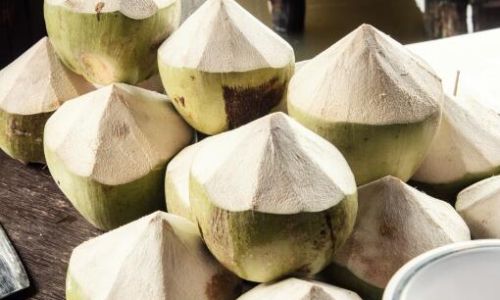
Nutritional Values
Young Coconut (Coconut Water)
Coconut water is often hailed as a natural, hydrating beverage that offers a range of health benefits. It is low in calories, containing only about 46 calories per cup (240 milliliters), and is a good source of electrolytes such as potassium and sodium. These electrolytes help maintain fluid balance and support proper muscle function, making coconut water an excellent choice for rehydration after exercise or in hot weather.
Coconut water is also rich in vitamins and minerals, including magnesium, calcium, and vitamins C and B-complex vitamins. These nutrients contribute to overall health by supporting immune function, bone health, and energy production. Additionally, coconut water contains antioxidants such as polyphenols, which may help protect cells from damage caused by free radicals.
One of the most notable benefits of coconut water is its low glycemic index (GI), which means it raises blood sugar levels more slowly than high-GI foods. This makes it a suitable choice for individuals with diabetes or those looking to maintain stable blood sugar levels.
Mature Coconut (Coconut Meat and Milk)
Mature coconut meat and milk offer a different set of nutritional benefits. The meat is high in fiber, with about 7 grams per cup (150 grams), which is important for digestive health and can help you feel full longer. It is also a good source of healthy fats, particularly medium-chain triglycerides (MCTs), which are easily digested and can provide a quick energy boost.
Coconut meat is rich in essential minerals such as magnesium, potassium, and phosphorus, which are important for bone health and proper nerve function. It also contains vitamins such as vitamin E, which is an important antioxidant that helps protect cells from damage.

Coconut milk, when made from the grated meat of a mature coconut, is high in fat but low in carbohydrates and protein. It is an excellent source of MCTs, which have been shown to improve metabolic health by increasing fat burning and reducing appetite. Coconut milk also contains lauric acid, a type of fatty acid that has antiviral and antibacterial properties, which may help boost the immune system.
However, it’s important to note that coconut milk is high in calories and saturated fat, so it should be consumed in moderation, particularly by individuals watching their intake of these nutrients.
Culinary Uses
Young Coconut (Coconut Water)
Coconut water’s refreshing taste and low calorie content make it a popular choice for hydration and as a base for smoothies and other beverages. It can be enjoyed straight from the coconut or mixed with fruits, vegetables, and other ingredients to create a variety of delicious drinks.
In the kitchen, coconut water can be used as a substitute for dairy milk in recipes, particularly in baking and smoothie making. Its subtle flavor and light texture make it a versatile ingredient that can be used in a wide range of dishes, from breakfast smoothies to tropical desserts.
Mature Coconut (Coconut Meat and Milk)
Mature coconut meat and milk are staple ingredients in many tropical and international cuisines. The meat can be grated, shredded, or chopped and used in a variety of dishes, from sweet desserts like coconut macaroons and candies to savory curries and stir-fries.
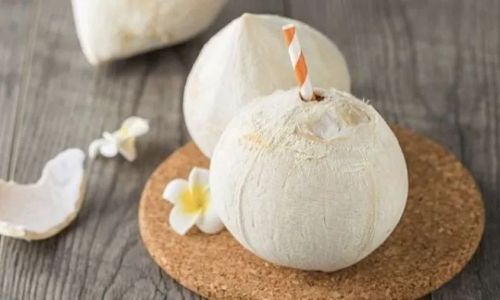
Coconut milk is a key ingredient in many Thai, Indian, and Southeast Asian dishes, such as curries, soups, and stir-fries. Its rich, creamy texture and full-bodied flavor make it an excellent base for sauces and gravies, while its ability to withstand high heat without curdling makes it ideal for cooking.
Coconut milk can also be used in baking and dessert making, particularly in recipes that require a moist, tender texture, such as cakes, pies, and cobblers. Its high fat content helps create a rich, indulgent mouthfeel, while its subtle nutty flavor complements a wide range of ingredients.
Health Benefits
Young Coconut (Coconut Water)
Coconut water’s hydration properties make it an excellent choice for athletes and individuals who engage in physical activity. Its high electrolyte content helps replenish fluids and minerals lost through sweat, making it a natural and effective way to stay hydrated.
Coconut water’s low glycemic index and high potassium content also make it a suitable choice for individuals with diabetes or high blood pressure. Its ability to support fluid balance and muscle function can also be beneficial for overall health and well-being.
Mature Coconut (Coconut Meat and Milk)
Mature coconut meat and milk offer a range of health benefits, particularly for individuals looking to improve their metabolic health. The medium-chain triglycerides in coconut oil and milk have been shown to increase fat burning and reduce appetite, making them an excellent choice for weight management.
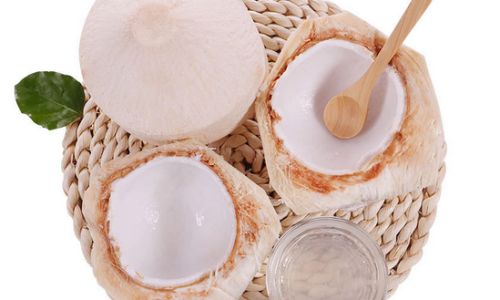
The lauric acid in coconut milk has antiviral and antibacterial properties, which may help boost the immune system and protect against infections. Coconut meat’s high fiber content can support digestive health and help you feel full longer, making it a useful tool for weight loss and maintenance.
Additionally, the minerals and vitamins in coconut meat and milk contribute to overall health by supporting bone health, immune function, and energy production. While coconut milk should be consumed in moderation due to its high calorie and saturated fat content, its unique nutritional profile makes it a valuable addition to a balanced diet.
Conclusion
In conclusion, both young coconuts and mature coconuts offer unique nutritional profiles and culinary uses that make them valuable additions to a healthy diet. Young coconuts, with their refreshing coconut water and subtle flavor, are ideal for hydration and as a base for smoothies and other beverages. Mature coconuts, with their rich coconut milk and chewy meat, are staple ingredients in many tropical and international cuisines and offer a range of health benefits, particularly for metabolic health and immune support.
By understanding the differences between young coconuts and mature coconuts, you can make informed choices about how to incorporate these versatile fruits into your diet. Whether you’re looking to stay hydrated, improve your metabolic health, or simply enjoy the delicious flavor of coconut, there’s a coconut product to suit your needs.




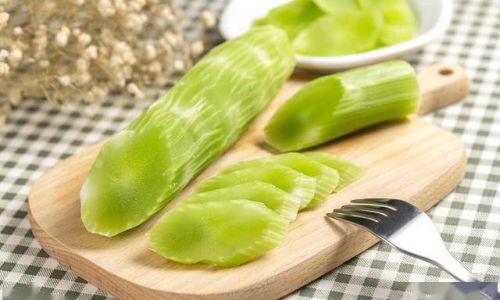
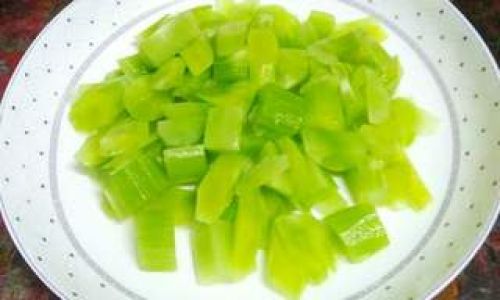
0 comments